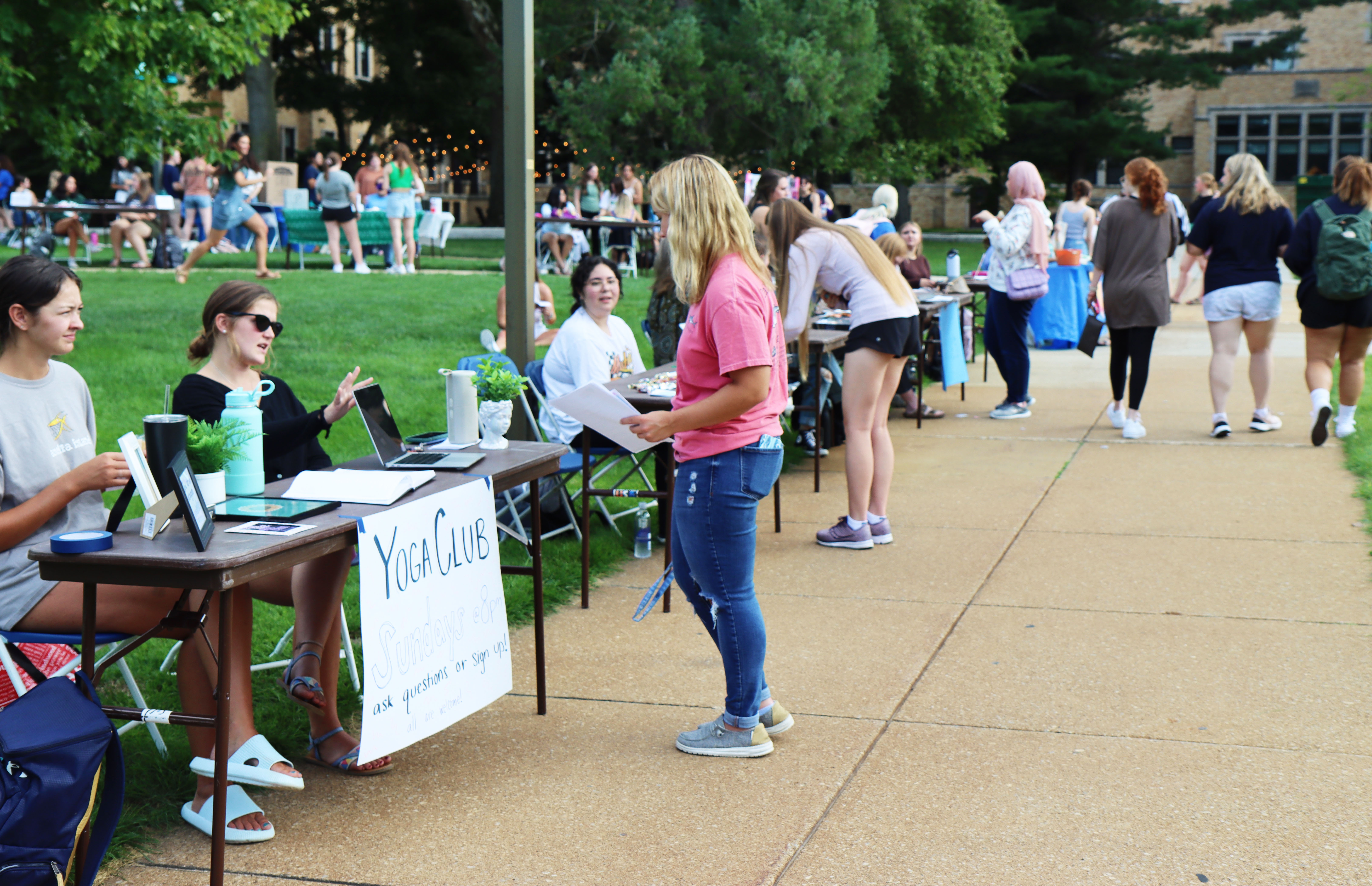The Case for Social Capital
Saint Mary's Stories
Dear Saint Mary’s Friends,
Last week, I headed over to Notre Dame to attend the showing of a new documentary film based on research by retired Harvard political scientist Robert Putnam. The film, Join or Die, explores and extends the work Putnam has published across his long career, most famously in his book from 2000—Bowling Alone: The Collapse and Revival of an American Community.
 Putnam wants us all to be aware of the profound positive health impacts associated with joining a club or an organization. This spirit of joining is not only good for us individually, he argues: it also promotes the health of our democracy. Long before the pandemic created a period where we all experienced required social isolation, Putnam had asserted that over the course of the 20th century, our American culture first embraced and then moved away from creating and sustaining the kinds of community organizations that helped people build “social capital.” We went from being people who embraced memberships and fostered communal gatherings to saying: “I’m not a joiner.”
Putnam wants us all to be aware of the profound positive health impacts associated with joining a club or an organization. This spirit of joining is not only good for us individually, he argues: it also promotes the health of our democracy. Long before the pandemic created a period where we all experienced required social isolation, Putnam had asserted that over the course of the 20th century, our American culture first embraced and then moved away from creating and sustaining the kinds of community organizations that helped people build “social capital.” We went from being people who embraced memberships and fostered communal gatherings to saying: “I’m not a joiner.”
I read Bowling Alone many years ago, and I’ve followed Putnam’s work for over two decades. In some ways, it’s discouraging to read about how every kind of social networking has plummeted in the U.S.—from “fraternal” organizations to bowling leagues to picnicking! He points out that almost all organized religions have seen stark decreases in worship participation. Volunteerism is also on the wane. But in other ways, it makes the work we do at Saint Mary’s even more important. We can help students develop their faith lives in meaningful ways. We can encourage them to raise their hands, to join clubs and organizations, and—if we do it well—to develop those habits of citizenship, participation, and leadership that will continue to enrich them throughout their lives.
I’m very much aware that it was four years ago this month that I raised my own hand to uproot our life in Boston and to help write the next chapter at Saint Mary’s. In the speech I made on February 12, 2020—the day I was announced as the incoming SMC president—I actually quoted Robert Putnam as I mused on what kind of environment we might create together at Saint Mary’s. Here’s is a brief passage from that speech, where I articulated my hopes that SMC would continue to be a stronghold of moral imagination, a model for community engagement, and a place of belonging:
We live in a time of social isolation, what some have even called “a crisis of loneliness.” It’s hard to believe it’s been 20 years since Robert Putnam published his astonishing study, Bowling Alone: The Collapse and Revival of an American Community. Putnam’s book is all about the decline of social capital—the erosion of formal networks of people who forged civic responsibility through their connections. Having 1,000 people in your LinkedIn network doesn’t amount to a hill of beans if you don’t have people you are actually in community with—people you can count on and who can count on you. We need real links to other people if we want true belonging. And belonging is amplified, Putnam says, when those links are enriched by civic virtue and deepened by reciprocal obligations.
“Civic virtue” and “reciprocal obligations” are in shorter supply today than they once were. But Putnam doesn’t have a doomsday message about this. The subtitle of Bowling Alone presages not only the collapse but also the revival of community values. His most recent book, The Upswing, co-authored with Shaylyn Romney Garrett, has a similarly confident subtitle: How America Came Together a Century Ago and How We Can Do It Again. I had the opportunity to chat with Putnam after the screening of the film last week at ND, and he spoke admiringly about Saint Mary’s and the ways we can prepare students to be civic leaders. He vigorously agreed with something else I had said in that speech back in 2020 (and have said since): “that a small college like ours with a robust mission can become a true home for its students, faculty, and staff, a place where everyone—with all their differences intact—still belongs.” I said then and I believe now that “in our contemporary moment . . . such spaces are essential and even sacred.”
Social capital is all about strong relationships and mutual trust. Our Saint Mary’s community and the broader community will prosper—and each of us will be literally healthier—if we join something! Together, we can work toward building social capital by lifting each other up, extending each other grace, remembering who has done that for us, and seeking ways to “pay it forward.”
Warm regards,
Katie Conboy, Ph.D
President
February 29, 2024
